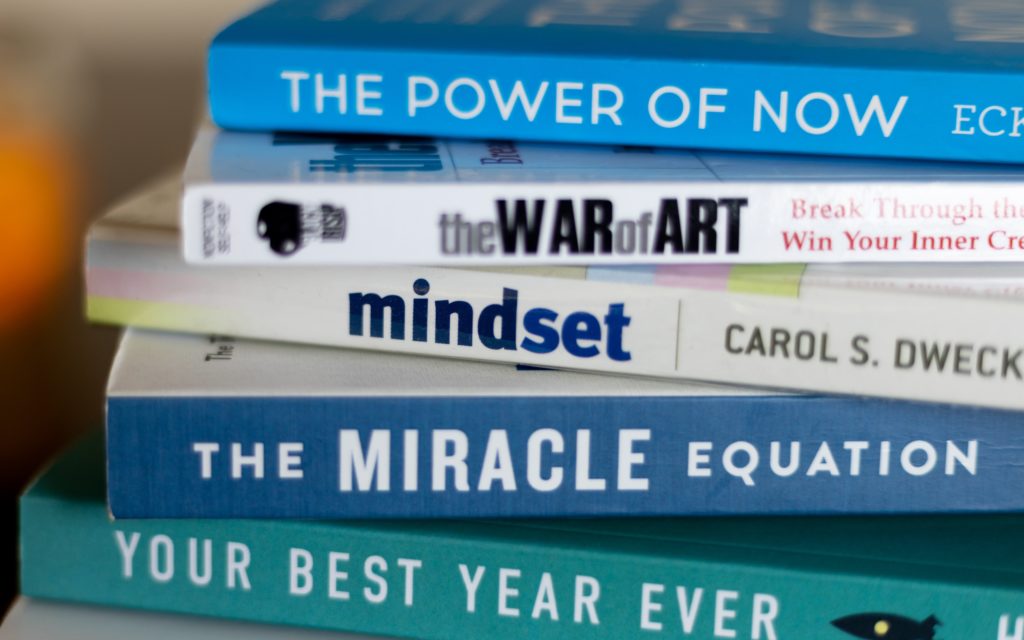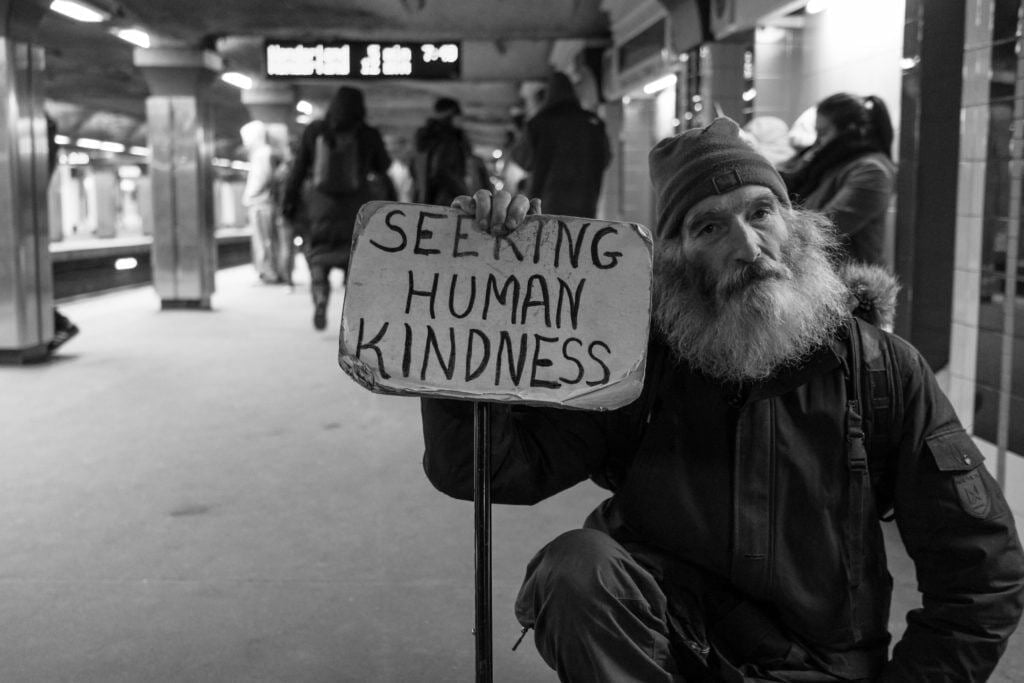To Be or Not To Be Positive Vs. The Negativity Bias

Positive thinking is a controversial topic as we are proud owners of negativity bias that comes with a ferocious tendency to expect the worst. Some people are more prone to this than others, and it’s important to understand the origins of fear and the future of positive thinking. This article will explore the benefits of being positive rather than negative, as well as a few easy steps to walk our of the negative energy and never look back.
If you switch on the news, there are very few, if any, positive news. Across the 358,000 newspapers going press tonight for tomorrow, only 2% of the headlines are positive news! Personally I refuse to ignore the positive in our life as a society, and not surprisingly, I found so much good news that I have no choice but to grow our small newsroom, bootstrapping of course, as advertisers still believe that only ‘what bleeds it leads’.
Eventually, we will change the culture, make the good news together, as more and more people across cultures and industries are joining us and are in the process of learning to write about their passion and what makes them happy, as we speak! There is so much to celebrate in our wonderful world, but I need your help to bring more good news to our readers homes!

What makes it easier to dwell more on negative things than on good things
The negativity bias can be influenced by many factors, such as self-esteem or lack of it, fear, and guilt. People who have a low self-esteem are more likely to focus on the negative aspects of their life because they feel inferior. Fear can also play a massive role in the negativity bias because people tend to focus on the potential dangers in their environment. Lastly, guilt can lead to the negativity bias because people dwell on their past mistakes.
People tend to dwell more on negative things than on good things. So the mind then becomes obsessed with negative things, with judgments, guilt and anxiety produced by thoughts about the future.
Eckhart Tolle

Positive thinking is a powerful tool that can help us overcome challenges and achieve our goals. If you’re looking for a way to change your life for the better, start by changing your thoughts.
It’s easy to focus on the negative things in life, and much harder to appreciate the good. Why is this? One theory is that it’s because we’re wired to pay more attention to potential threats than to potential rewards. According to this theory, our ancestors who were more vigilant about potential dangers were more likely to survive and pass on their genes.
Another theory is that we dwell on the negative because it feels more manageable. It’s easier to control our thoughts about something that has already happened than it is to control our thoughts about something that might happen.

The negativity bias and the power of positive thinking
You could say, ” Well, if it’s human nature to dwell more on negative things than positive ones, it’s rooted in our evolutionary history. What can I do about that?” Our ancestors lived in a world where danger was always lurking, so it was important to pay more attention to potential threats than to good things happening around them.
Even before we had Gutenberg, the story was told on walls on dark, cold caves. But look at us, today: yes we still have a wall, but on Facebook, how can we not celebrate everything that generations before us created for the future? How are we going to use our superpowers, now that we are just a click away from what is possible? Can you even imagine the tomorrow of humanity without positive thinking?!
The Power of Positive Thinking is a book by Norman Vincent Peale that was first published in October 1952. It’s one of the best-known self-help books of all time, and it’s still popular today. Despite the criticism, it sold more than 5 million copies worldwide and was eventually translated into over 40 languages. The book unleashed long controversial debates and back then, The Los Angeles Times wrote: “legions of followers testified that Peale’s message changed their lives for the better and represented the best combination of faith and pragmatism.”
In the book, Peale talks about how our thoughts can influence our lives in a positive or negative way. He believes that if we focus on positive thoughts, we can achieve success and happiness in our lives.
Did our attitude towards positive thinking changed in the last 70 years since this book was published? Looking around me, it is hard to say…Today, we still have this negativity bias, even though we have a lot more evidence on the power of positive thinking and we don’t live in such a dangerous world as our ancestors did. And the negativity bias is still dragging its feet, pushing us into self doubt, anxiety, fear and lack of self confidence, all designed to lead the way on the negative aspects of our lives than the positive ones.

People dwell more on negative things than on positive ones when the brain pays more attention to negative stimuli than to positive or neutral stimuli. This can be due to evolutionary reasons, as it was beneficial for survival to pay more attention to potential dangers. Nowadays, this negativity bias can still be seen in people’s thought patterns and behavior. For example, someone might dwell on a critical comment from a boss more than on a compliment from a coworker. This tendency can influence a person’s self-esteem and make them feel inferior. It can also lead to fear and guilt.
The good news is that we can overcome this negativity bias by making a conscious effort to focus on the positive things in our lives. When we do this, we can start to see the world in a more positive light and feel better about ourselves and our lives.
The power of positive thinking and what makes us dwell on negative things

Why it’s easier to dwell on negative things, where is this unhealthy, unsetious appetite for bad news coming from? Bad news are often more salient and, usually, more memorable than positive things. We tend to pay more attention to what’s wrong in our lives than what’s right and it’s one of the reasons why it’s so hard to be optimistic.
Negative experiences tend to stand out more in our minds, and we often replay them in our heads over and over again and it’s something that we all deal with to some extent.
Believe it or not, I believe that negativity bias can be helpful in some situations. It can help us avoid danger and make us more cautious in general. But when it comes to our everyday lives, dwelling on negative experiences can hold us back and make us unhappy. Trying to find the reasons people in 2022 are still questioning positive thinking, are complex but if I want to make it really simple, it all comes to three reasons:
First, our brains are wired to pay more attention to threats. This is an evolutionary adaptation that helped our ancestors survive in a dangerous world. But in today’s world, this tendency can lead us to focus on the negatives in our lives even when there aren’t any real threats present.
Second, we tend to compare ourselves to others and focus on what we don’t have rather than what we do have. When we see other people who seem to have perfect lives, it’s easy to dwell on our own flaws and shortcomings. We forget about all of the good things. Don’t ask me why…
Third reason, but the most powerful one, is social conditioning. We are the result of our habitat.
“Social conditioning represents the environment and personal experience in the nature and nurture debate. Society in general and peer groups within society set the norms which shape the behavior of actors within the social system. Though society shapes individuals; however, it was the individual who made society to begin with and society in turn shaped and influenced us. Emile Durkheim who really played an important role in the theory of social facts, explained and talked how what was once a mere idea which in this case Durkheim is talking about society has turned out to be a thing which basically controls and dictates us.”
Reading this you might think that I start turning into a negative person myself, but wait, before you start labeling me, I have really good news! The good news is that you can train your brain to focus on the positive. Research has shown that people who regularly practice gratitude are happier and more resilient in the face of adversity. So if you want to make it easier to dwell on good things, start by being thankful for what you have. And, another thing: please remember to stop comparing yourself with others!

How to overcome the negativity bias
It’s easy to dwell on negative things because, as humans, we’re wired to pay more attention to bad news than good news. The good news is that there are things we can do to overcome this negativity bias and focus more on the positive.
One way to do this is to practice gratitude. When you take the time to notice and appreciate the good things in your life, you’re training your brain to focus on the positive. Another way to overcome the negativity bias is to reframe your thinking. When you find yourself dwelling on negative thoughts, try to look at them in a different, more positive light. For example, if you’re feeling down about a situation at work, try to see it as an opportunity for growth or learning.
The next time you find yourself dwelling on the negative, remember that you have the power to change your focus. With a little effort, you can train your brain to see the world in a more positive light, and switch that light on, not the news, when facing dark moments.
Conclusion
While it’s normal to dwell on negative things more than positive things, there are a few things you can do to change this. One is to keep a gratitude journal, where you write down three things you’re thankful for every day. Another is to make an effort to find the silver lining in every situation — even if it’s just that you learned from your mistakes. Finally, try to surround yourself with positive people who will help support your efforts to focus on the good.
Changing your focus from negative to positive won’t happen overnight. But with a little effort, you can train your brain to see the world in a more positive light. And when you do, you’ll find that your life is happier and more fulfilling as a result.
When you’re feeling down, it’s easy to dwell on the negative things in your life. But if you want to be happier and more successful, it’s important to focus on the positive. Positive thinking is a powerful tool that can help you overcome challenges and achieve your goals. So if you’re looking for a way to change your life for the better, start by changing your thoughts.
I remember studying The Power of Positive Thinking by Norman Vincent Peale in school and writing an essay about the spiritual techniques the author shared “to overcome, defeat and win confidence, success and joy.” I was about to turn 16 when I first opened this book, which was hard to find back then, and it is the most beautiful treasure I ever found. Decades later, I am still walking into serendipity, wearing a big smile in my heart every day. You could try it one day…



